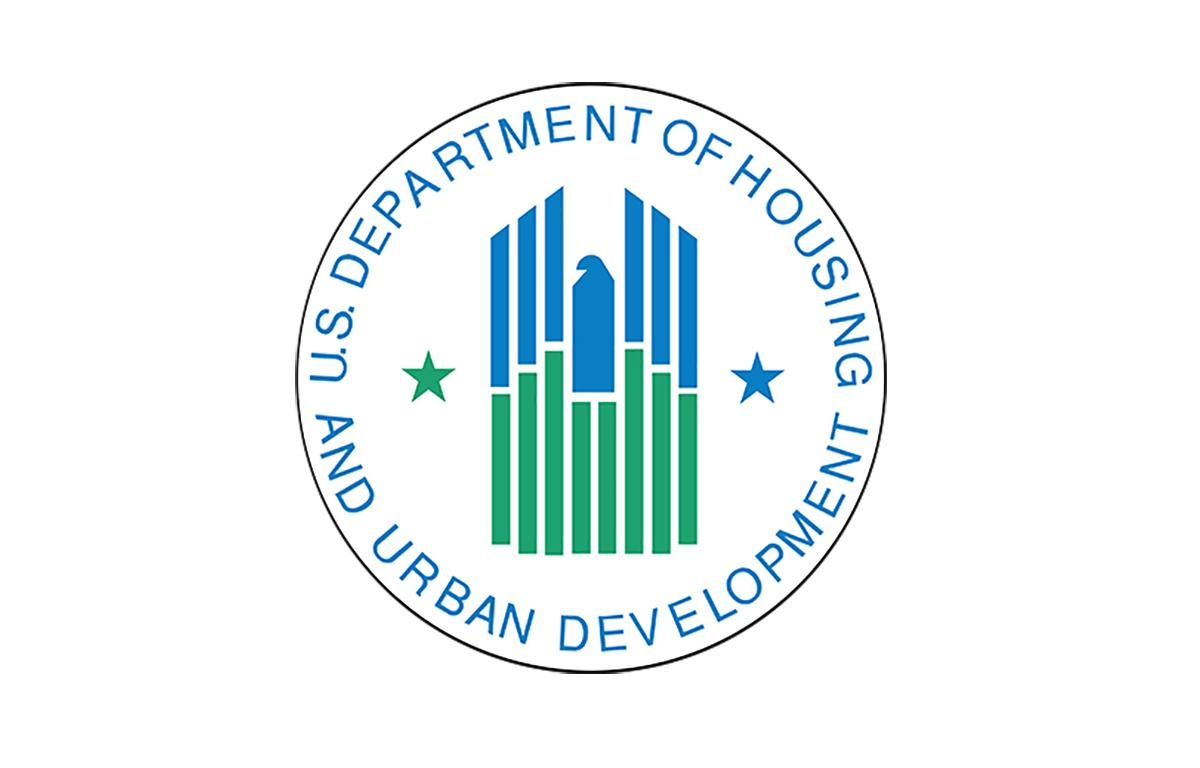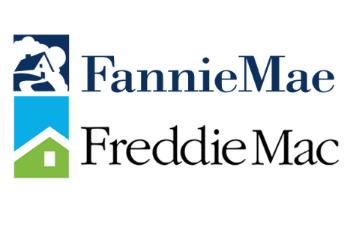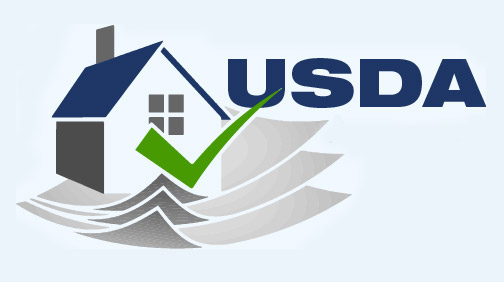Loan Programs
FHA Mortgage Loans, VA Mortgage Loans, Conventional Mortgage Loans, HomePath Mortgage Loans, Jumbo Mortgage Loans, USDA Mortgage Loans. As you can see there are numerous to choose from, each with their own unique qualifications and guidelines. Below is an overview of each.
FHA Loans
An FHA loan is insured by the Federal Housing Administration, a federal agency within the U.S. Department of Housing and Urban Development (HUD). The FHA does not loan money to borrowers, rather, it provides lenders protection through mortgage insurance (MIP) in case the borrower defaults on his or her loan obligations. FHA loan programs are designed to help creditworthy low-income and moderate-income families who do not meet requirements for conventional loans.
FHA loan programs are particularly beneficial to those buyers with less available cash. The rates on FHA loans are generally market rates, while down payment requirements are lower than for conventional loans.

Some of the other benefits of FHA financing:
- Only a 3.5 percent down payment is required.
- Debt to Income ratios can be higher
- Lower Credit Scores acceptable
- Right to prepay loan without penalties
- Flexible underwriting criteria
- Loans may be assumable to qualified buyers.
FHA Streamline Refinance
FHA has permitted streamline refinances on insured mortgages since the early 1980's. The "streamline" refers only to the amount of documentation and underwriting that needs to be performed by the lender, and does not mean that there are no costs involved in the transaction. Streamline refinances are designed to lower the monthly principal and interest payments on a current FHA-insured mortgage and must involve no cash back to the borrower, except for minor adjustments at closing not to exceed $250. Streamline refinances can be made with or without an appraisal.
The basic requirements of a Streamline Refinance are:
- The mortgage to be refinanced must already be FHA insured.
- The mortgage to be refinanced should be current (not delinquent).
- The refinance is to result in a lowering of the borrower's monthly principal and interest payments.
- No cash may be taken out on mortgages refinanced using the streamline refinance process.
VA Loans
 VA guaranteed loans are made by lenders and guaranteed by the U.S. Department of Veteran Affairs (VA) to eligible veterans for the purchase of a home. The guaranty means the lender is protected against loss if you fail to repay the loan. In most cases, no down payment is required on a VA guaranteed loan and the borrower usually receives a lower interest rate than is ordinarily available with other loans.
VA guaranteed loans are made by lenders and guaranteed by the U.S. Department of Veteran Affairs (VA) to eligible veterans for the purchase of a home. The guaranty means the lender is protected against loss if you fail to repay the loan. In most cases, no down payment is required on a VA guaranteed loan and the borrower usually receives a lower interest rate than is ordinarily available with other loans.
Other benefits of a VA loan include:
- Low interest rates.
- Closing costs are comparable and sometimes lower - than other financing types.
- No private mortgage insurance requirement.
- Right to prepay loan without penalties
Although mortgage insurance is not required, the VA charges a funding fee to issue a guarantee to a lender against borrower default on a mortgage. The fee may be paid in cash by the buyer or seller, or it may be financed in the loan amount.
A VA loan can be used to buy a home, build a home and even improve a home with energy-saving features such as solar or heating/cooling systems, water heaters, insulation, weather-stripping/caulking, storm windows/doors or other energy efficient improvements approved by the lender and VA.
Veterans can apply for a VA loan with any mortgage lender that participates in the VA home loan program. A Certificate of Eligibility from the VA must be presented to the lender to qualify for the loan.
VA Funding Fee
Generally, all Veterans using the VA Home Loan Guaranty benefit must pay a funding fee. This reduces the loan's cost to taxpayers considering that a VA loan requires no down payment and has no monthly mortgage insurance. The funding fee is a percentage based on your military category, if you are a first-time or subsequent loan user, and the amount of down payment if any. You have the option to finance the VA funding fee or pay it in cash, but the funding fee must be paid at closing time. You MAY not be required to pay the fee if you are a:
-
Veteran receiving VA compensation for a service-connected disability, OR
-
Veteran who would be entitled to receive compensation for a service-connected disability if you did not receive retirement or active duty pay, OR
-
Surviving spouse of a Veteran who died in service or from a service-connected disability.
VA IRRRL (Interest Rate Reduction Refinance Loan)
The VA Interest Rate Reduction Refinance Loan (IRRRL) lowers your interest rate by refinancing your existing VA home loan. By obtaining a lower interest rate, your monthly mortgage payment should decrease. You can also refinance an adjustable rate mortgage (ARM) into a fixed rate mortgage.
A Few IRRRL Facts:
-
No appraisal or credit underwriting package is required when applying for an IRRRL.
-
An IRRRL may be done with "no money out of pocket" by including all costs in the new loan.
- When refinancing from an existing VA ARM loan to a fixed rate loan, the interest rate may increase.
- Veterans may NOT receive any cash from the loan proceeds.
Conventional Loans
Many loans generated today are FHA insured mainly due to the low down payment requirements and lower credit scores to qualify. But due to the increasing Mortgage Insurance requirements and costs under FHA, many more Conventional Loans are now being originated, and in respectable numbers. A conventional loan may be a less expensive alternative when the borrower has a very strong credit score and enough down payment for the property, usually 3%-5%. The credit scores along with the down payment are directly affected by each other.

All Conventional Loan approvals are based on either Fannie Mae or Freddie Mac guidelines. Both Fannie and Freddie have “engines” which are software programs that mortgage companies have access to, that enable them to run these applications to determine if the borrower is qualified for the loan program. This is derived once the broker has obtained the needed information and documentation from the borrower, along with a valid credit report. This engine will provide a decision "Findings". An "Approve/Eligible" result is what we are trying to obtain.
Private Mortgage Insurance, or PMI, is usually required for any Conventional Loan that has a Loan to Value (LTV) greater than 80%. The cost of PMI is very competitive, and in many cases less than FHA Mortgage Insurance, which is the reason there are more Conventional Loans being originated recently.
Depending on the type of loan whether FHA, USDA or Conventional, PMI companies work differently. PMI is an insurance policy that helps the lender recover some or all of of their investment in the property in case you default on your mortgage. PMI is provided by private (non-government) companies on Conventional Loans and as stated above, is usually required when your Loan to Value (LTV) ratio — the amount of your mortgage loan divided by the value of your home — is greater than 80 percent. On FHA or USDA loans, a government agency is the insurer and the rules to calculate PMI are different than conventional loans.
Lender Paid Mortgage Insurance - Conventional Loans. There are instances where it may be beneficial for the borrower to obtain Lender Paid MI in lieu of PMI. To do this, the lender builds the cost of the MI into the interest, resulting in a slightly higher interest rate and no monthly PMI, BUT, many times the the total payment is LESS with the higher interest rate and MI built in vs the lower interest rate with monthly PMI. There are also scenarios where this is the only option to the borrower to keep the payment within the Debt to Income ratio guidelines.
USDA Loans
Did you know that if the property you are looking to purchase falls in a designated rural area in Florida, you may qualify for 100% financing? You may even qualify to finance closing costs too! Talk about $0 down! As opposed to FHA loans which still require a minimum 3.5% down payments, this government insured program provides the ONLY true 100% financing. This is one of the best kept secrets in this industry. And the program applies to everyone, not just first time home buyers!
The following are just some of the highlights of the program: 
-
30 Year Fixed Rates
-
Full documentation – means we have to be able to verify income and assets.
-
Primary residencies only.
-
Single Family Homes, Warrantable Condos, Townhouses, Modular Homes.
-
100% financing based on appraised value.
-
Very low Upfront and monthly Mortgage Insurance.
- Seller contributions to help pay for closing costs.
- In most cases there are no reserves required – means you don’t have to show you have a certain amount of funds still available in the bank once the closing costs have been calculated out of the equation.
-
There are maximum income limits to be eligible for this program – this varies depending on the number of dependents and persons occupying the home, not just the person(s) applying for the loan.
Self-Employed Borrowers
Are you a business owner, and are finding it hard to qualify for Mortgage Financing due to your tax returns not showing enough income? Then we may have an answer for you. If you have a strong credit score, a significant down payment, typically at least 10% - 20%, and can provide documentation of income through bank statements, we have a few lenders that are now offering mortgage financing for your situation.
Other restrictions and guidelines may apply, so please contact us for more details!
Fixed Rate Loans versus Adjustable Rate Loans
A Fixed-Rate loan features a fixed payment amount for the entire duration of the loan. The property tax and homeowners insurance which are almost always part of the payment can vary over time, but for the most part, payments on these types of loans are stable.
Early in a fixed-rate loan, a large percentage of your monthly payment pays interest, and a significantly smaller part goes to principal. The amount paid toward principal increases up gradually every month.
You can choose a fixed-rate loan in order to lock in a low interest rate. Borrowers choose fixed-rate loans when interest rates are low and they want to lock in this lower rate. For homeowners who have an ARM now, refinancing with a fixed-rate loan can provide greater monthly payment stability. If you have an Adjustable Rate Mortgage (ARM) now, we can help you lock in a fixed-rate at the best rate currently available.
Adjustable Rate Mortgages - ARMs, as we called them above, come is a few varieties. Generally the interest rates for ARMS are determined by a federal index.
Most Adjustable Rate Mortgages feature a cap, which means they cannot go up over a specific amount in a given period of time. Some ARMs won't increase more than two percent per year, regardless of the underlying interest rate. Sometimes an ARM features a "payment cap" that ensures your payment will not increase beyond a fixed amount over the course of a given year. Almost all ARMs also cap your rate over the duration of the loan
ARMs most often feature their lowest, most attractive rates toward the beginning. They guarantee that interest rate for an initial period that varies greatly. You may hear people talking about "3/1 ARMs" or "5/1 ARMs". For these loans, the introductory rate is fixed for three or five years. After this period it adjusts every year. These types of loans are fixed for a number of years (3 or 5), then adjust. Loans like this are usually best for people who expect to move within three or five years. These types of ARMs are best for people who will move before the initial lock expires.
You might choose an Adjustable Rate Mortgage to get a very low initial interest rate and plan on moving, refinancing or simply absorbing the higher rate after the introductory rate goes up. ARMs are risky when property values decrease and borrowers are unable to sell or refinance their loan.
Call or email today for more information!
You can also Apply Here at the Innovative Mortgage Services, Inc. corporate website!
Kenneth E Rivard (Kenny)
Licensed Mortgage Loan Originator
NMLS Originator ID: 330416
Innovative Mortgage Services, Inc.
NMLS Company ID: 250769
Phone/Text: 239-470-6484
eFax: 1-866-313-5708
eMail: Kenny@MyFlaHomeLoan.com
No copyright infringement is intended